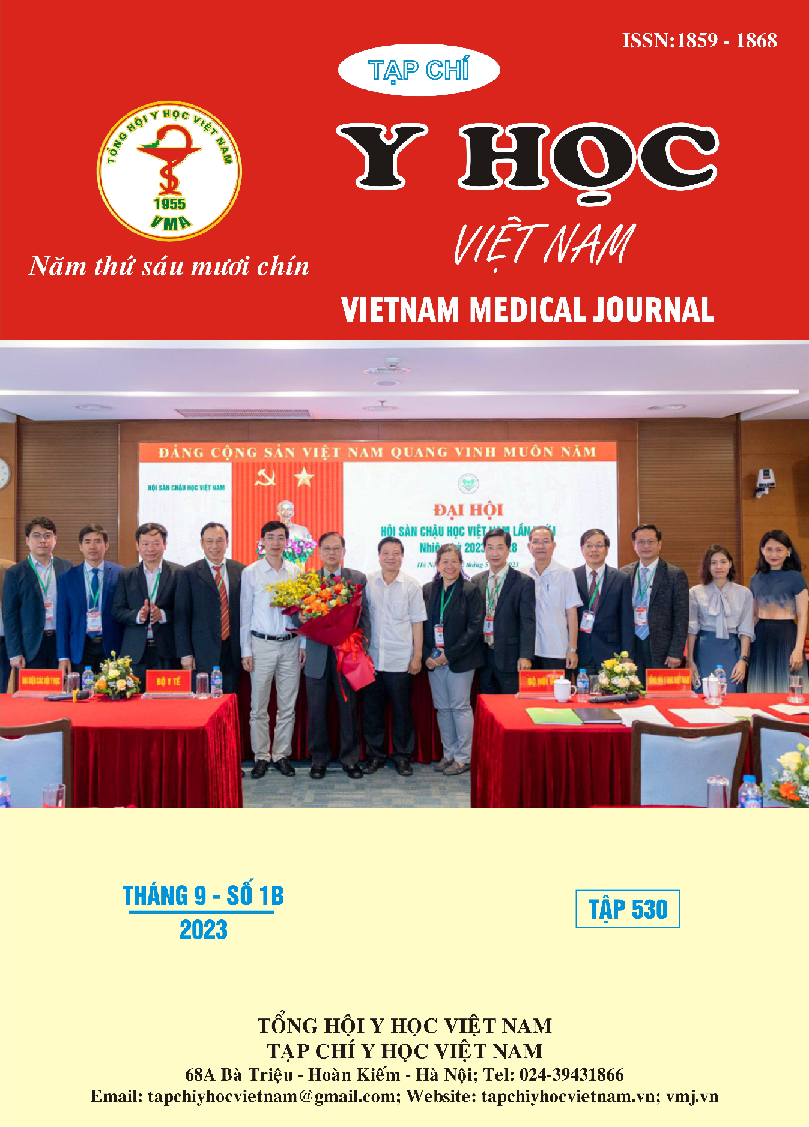EVALUATE USER’S EXPERIENCE OF GERDCARE APPLICATION IN HEALTHCARE WORKERS
Main Article Content
Abstract
Digital transformation in healthcare and chronic disease management via mobile applications has been paid more attention. The GERDCare application was developed with the goal of optimizing the management of patients with gastroesophageal reflux disease (GERD), however it is still in the process of improvement and enhancement of its features. On that basis, a cross-sectional study was conducted between March and June 2023 among healthcare professionals and medical students, surveying their experience and evaluation after using GERDCare. 147 participants were recruited to this study with 43.5% male and the average age was 31.8. The results showed that over 80% of users evaluated features such as symptom changes record, medication reminders, disease-related knowledge, dietary guidance, and interaction with doctors as good and user-friendly. Besides, there are several errors while using the app including slow loading speeds. In the future, with continued upgrades and improvements, GERDCare can become a useful tool in supporting physicians and patients in managing gastroesophageal reflux disease.
Article Details
Keywords
Applications, Gastroesophageal reflux Disease (GERD), GERDCare
References
2. Mermelstein, J., A.C. Mermelstein, and M.M. Chait, Proton pump inhibitors for the treatment of patients with erosive esophagitis and gastroesophageal reflux disease: current evidence and safety of dexlansoprazole. Clin Exp Gastroenterol, 2016. 9: p. 163-72.
3. Đào, V.H., Nhu cầu sử dụng ứng dụng thiết bị di động hỗ trợ quản lý bệnh trào ngược dạ dày thực quản. Tạp chí Y học Việt Nam, 2021. 498(2).
4. Đào, V.H., Đánh giá thực trạng bệnh lý trào ngược dạ dày thực quản kháng trị và nhu cầu sử dụng ứng dụng di động nhằm hỗ trợ quản lý bệnh. Tạp chí Y học Việt Nam, 2021. 499(1-2).
5. Oakley-Girvan, I., et al., What Works Best to Engage Participants in Mobile App Interventions and e-Health: A Scoping Review. Telemed J E Health, 2022. 28(6): p. 768-780.
6. Pifarré, M., et al., TControl: A mobile app to follow up tobacco-quitting patients. Comput Methods Programs Biomed, 2017. 142: p. 81-89.
7. Szinay, D., et al., Influences on the Uptake of and Engagement With Health and Well-Being Smartphone Apps: Systematic Review. J Med Internet Res, 2020. 22(5): p. e17572.
8. Milne-Ives, M., et al., Mobile Apps for Health Behavior Change in Physical Activity, Diet, Drug and Alcohol Use, and Mental Health: Systematic Review. JMIR Mhealth Uhealth, 2020. 8(3): p. e17046.


